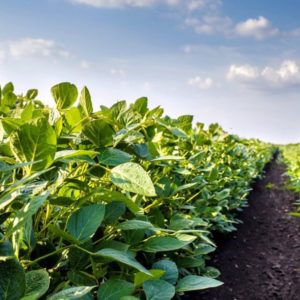Legacy Seeds Non-GMO Soybeans
By Legacy Seeds | February 15, 2022
The Legacy Seeds Difference: non-GMO Soybeans
Prior to 1995, all soybeans grown in the US were non-GMO. Most of the production was crushed for meal and oil, but varieties like Beeson 80 and Vinton were exported for the tofu market. The first GMO trait, Roundup Ready, was quickly adopted by soybean growers due to ease of weed control. Market penetration for GMO weed control traits quickly grew and has been consistent at 95% for several decades. The remaining 5% of the US soybean acres are non-GMO, split 60% for food use, 40% for feed.
 According to research from the United States Soybean Export Council, 4.4 million acres of non-GMO soybeans were planted in 2021. About 2.1 million acres were raised for food use, of which 80% was exported, with Japan and South Korea as the largest customers. The main food use is for tofu (52%) and soymilk (27%). These two uses require non-GMO, clear hilum, high protein, large-seeded varieties, like the Beeson 80 and Vinton lines from 40 years ago. Other food uses include miso, natto and sprouts. Animal feed consumes the remaining 1.7 million acres of production. Protein is the dominant desired trait for feed.
According to research from the United States Soybean Export Council, 4.4 million acres of non-GMO soybeans were planted in 2021. About 2.1 million acres were raised for food use, of which 80% was exported, with Japan and South Korea as the largest customers. The main food use is for tofu (52%) and soymilk (27%). These two uses require non-GMO, clear hilum, high protein, large-seeded varieties, like the Beeson 80 and Vinton lines from 40 years ago. Other food uses include miso, natto and sprouts. Animal feed consumes the remaining 1.7 million acres of production. Protein is the dominant desired trait for feed.
Minnesota (308,000 acres) and Wisconsin (189,000 acres) have thriving non-GMO soybean programs through exporters like SB-B and DeLongs. These programs are identity preserved with contracts and premiums offered for delivery of specific varieties. Legacy Seeds varieties like LS262-21C and LS187-21C offer the grower great yields while providing the buyer high protein, clear hilum, and large seed all as a non-GMO package.
Many growers believe the incentive offered with IP contracts is to off-set yield drag suffered by non-GMO varieties. While this might apply to some, Legacy Seeds has carefully selected varieties from 15 different genetic programs that fit processor needs, while preserving agronomic characteristics and yield potential sought by the grower. Varieties entered in the 2021 Wisconsin Performance Trials yielded in the same range or better than the GMO lines, with several in the 90+ bushel range, and two yielding over 100 bushel per acre. These exceptional performers have growers considering non-GMO soybeans for the traditional grain market instead of growing GMO lines. The yield, lower seed cost, and rising glyphosate price, combine to make raising non-GMO soybeans a more profitable solution for the soybean acre.

